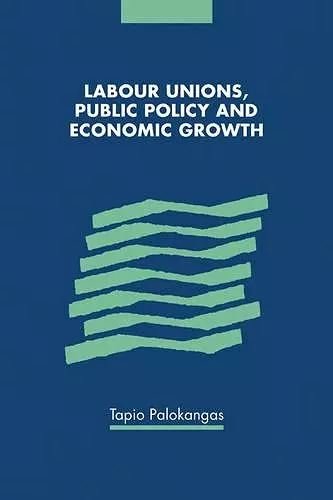Labour Unions, Public Policy and Economic Growth
Format:Paperback
Publisher:Cambridge University Press
Published:20th May '10
Currently unavailable, and unfortunately no date known when it will be back
This paperback is available in another edition too:
- Hardback£62.00(9780521663236)

A theoretical model of union bargaining, challenging the view that collective bargaining always has a negative impact on welfare.
This book presents a theoretical model of union bargaining. It challenges the prevailing view that collective bargaining has a negative impact on welfare and argues that given the existence of market failure, collective bargaining can enhance welfare. For scholars and students in labour economics, public economics, game theory and international economics.Collective bargaining is the main vehicle for labour worldwide to negotiate wages, benefits, retirement policies, training and other terms of working with management in both the public and private sectors. Labour economists have long been active in modelling the relations between collective bargaining agreements, labour markets and social welfare conditions. This book presents a theoretical model of unions which offers a unified treatment of the centralisation of bargaining, the credibility of labour contracts, the unionisation of labour markets and the relative bargaining power of the union. Tapio Palokangas develops the microfoundations of bargaining and examines collective bargaining interacting with public policy, investment and growth, and international trade and specialisation. In conclusion Professor Palokangas challenges the commonly held view that collective bargaining has a negative impact on economics welfare, and argues that with the existence of market failure, collective bargaining can be welfare enhancing.
ISBN: 9780521144056
Dimensions: 229mm x 152mm x 15mm
Weight: 380g
252 pages